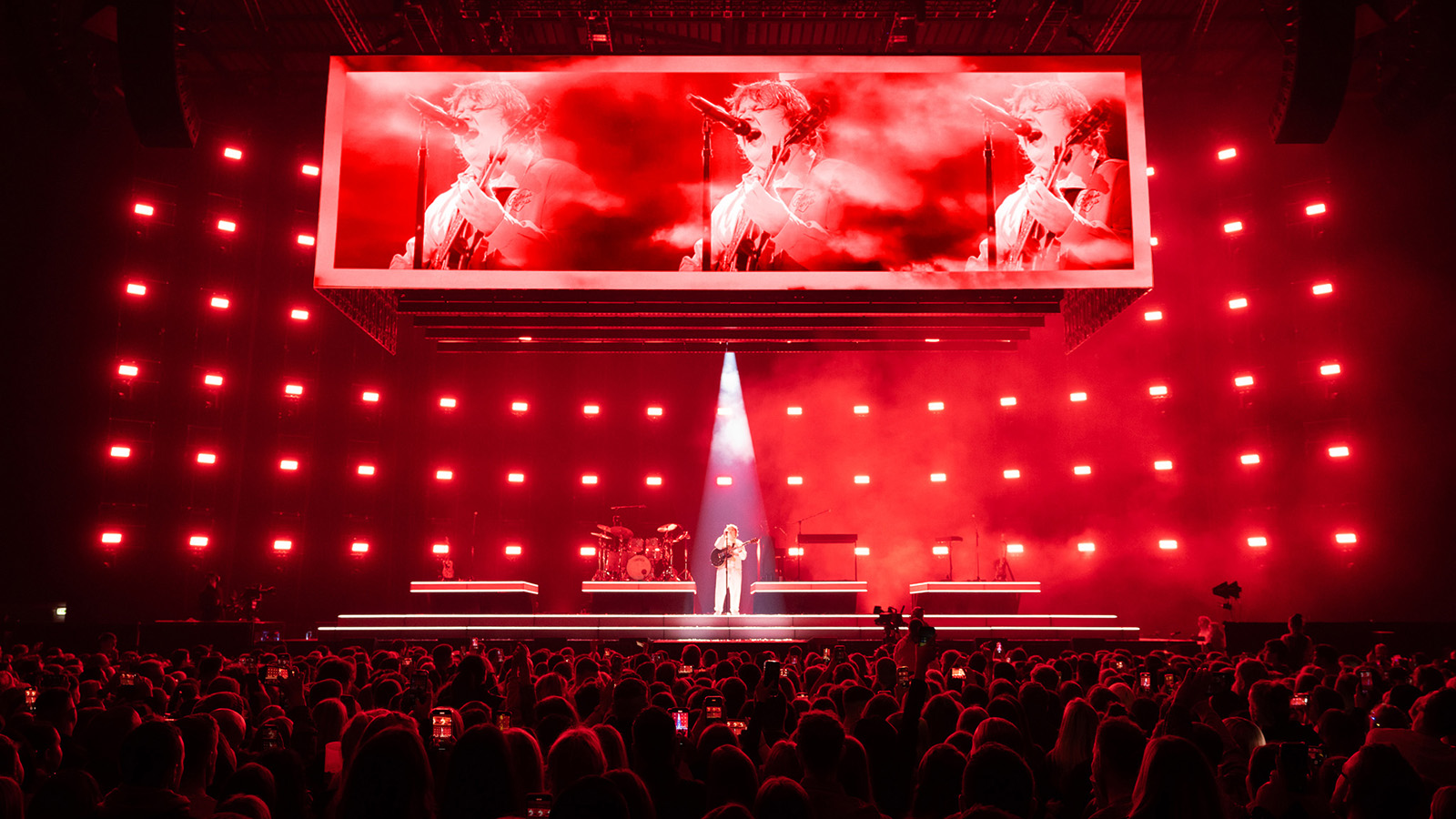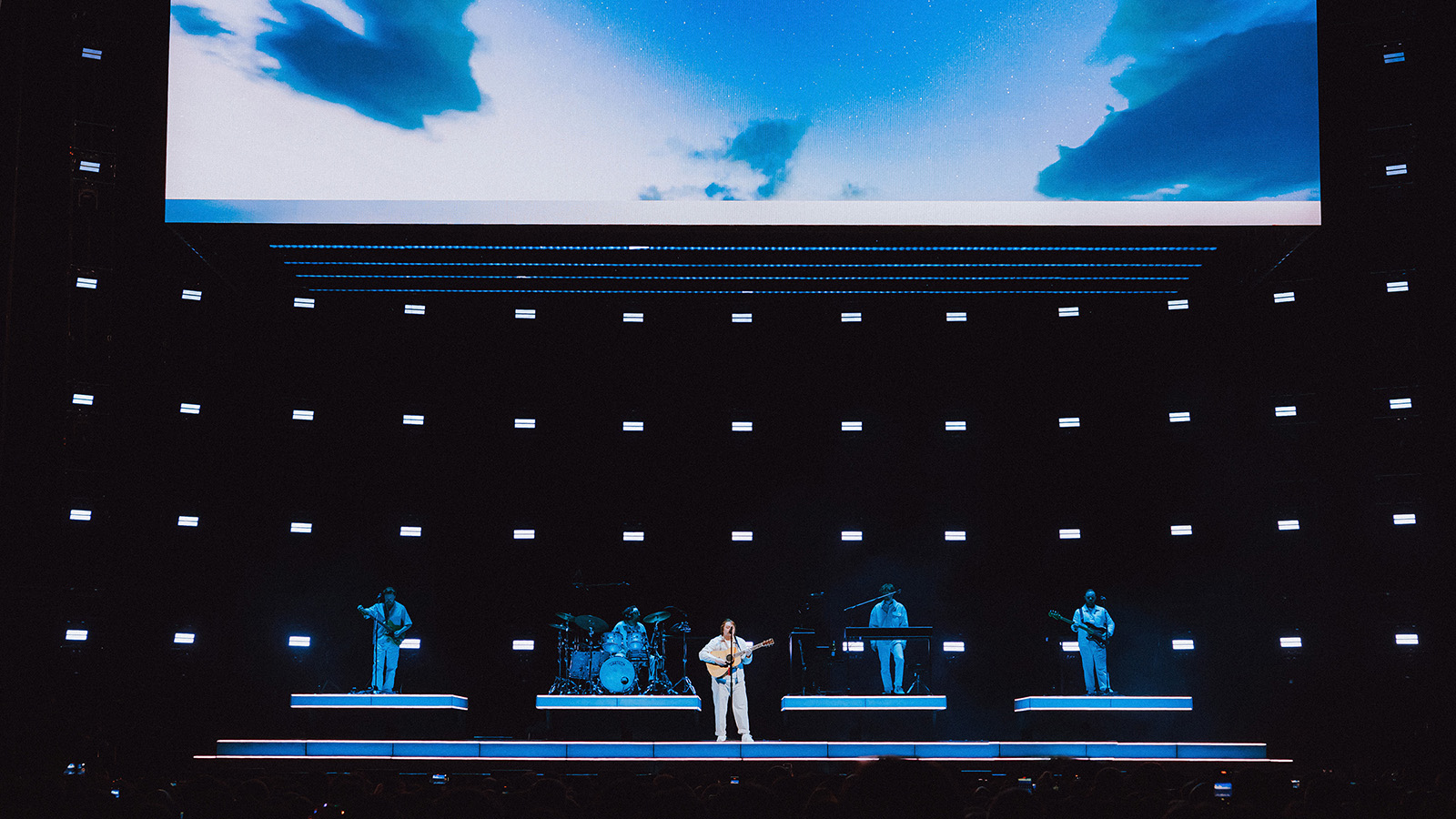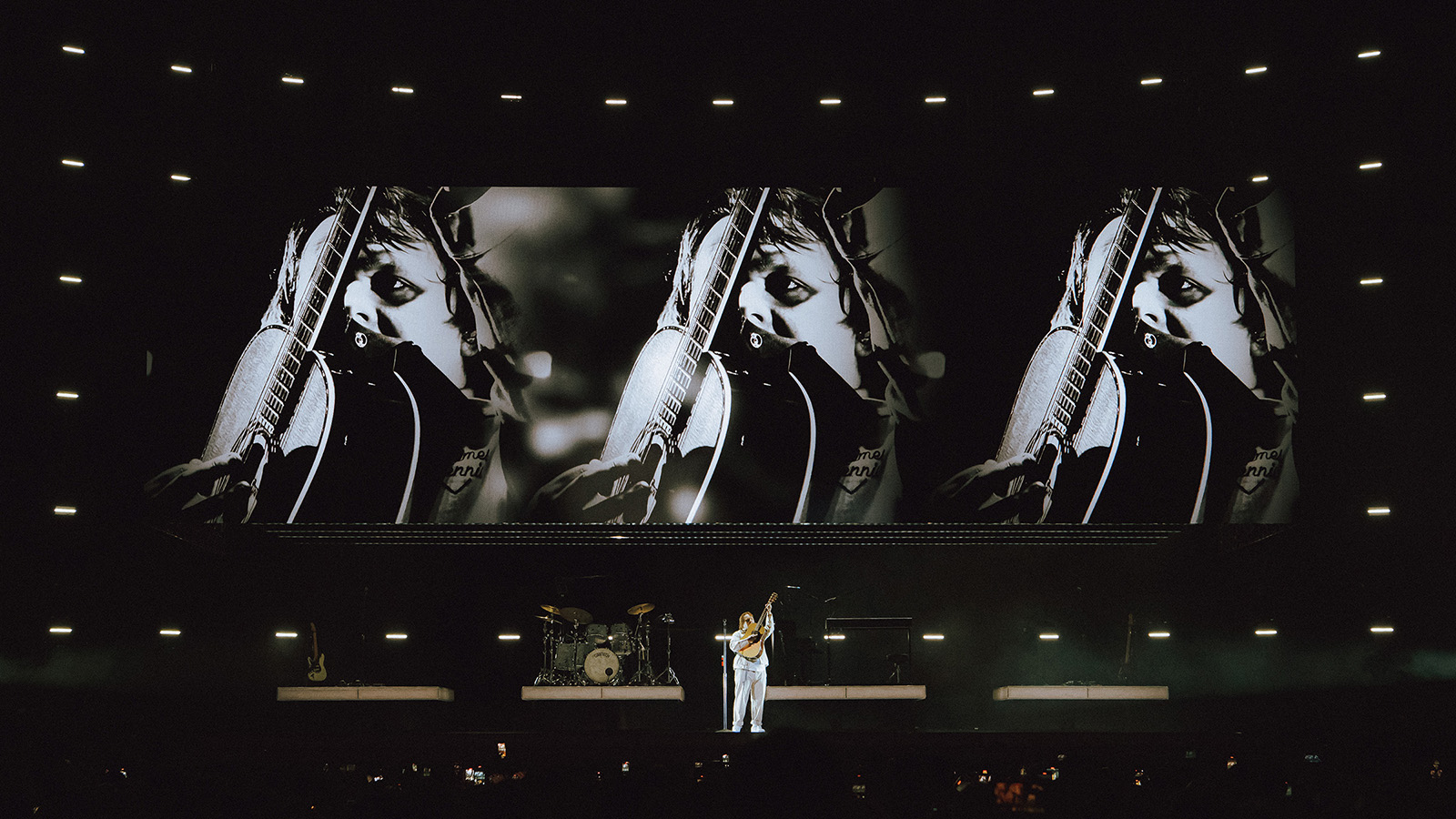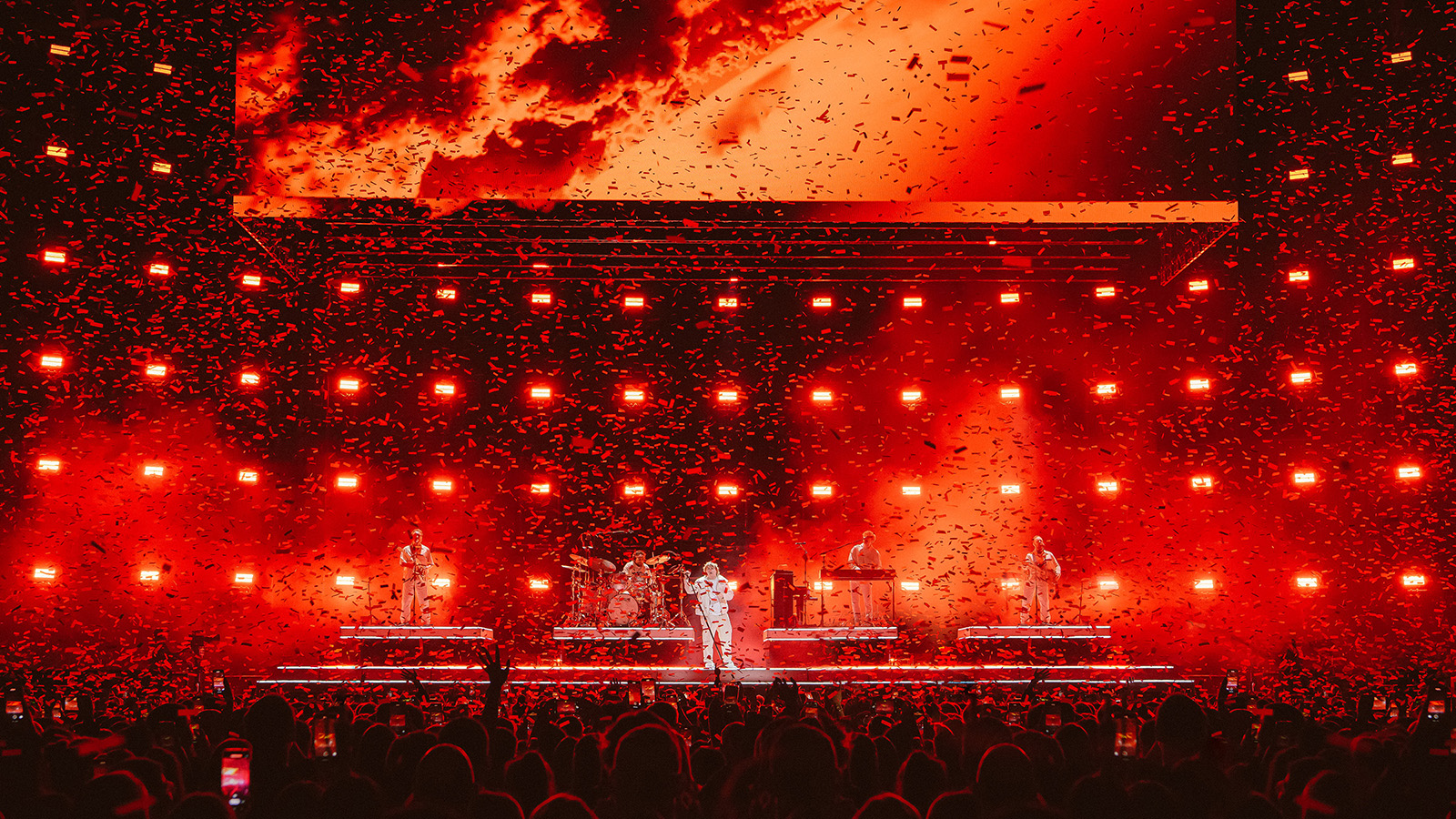Cassius Creative highlights brutalist architecture with powerful JDC1 grid
Lewis Capaldi is currently touring the States, having recently completed his biggest European tour to date, visiting arenas in 32 cities over two months.
Having played one of the last concerts before lockdown in March 2020, the Scot was out with a lighting package provided by Neg Earth, and new conceptual stage scenography orchestrated by Cassius Creative. This was constructed largely around GLP lighting solutions, notably a large grid of 102 powerful JDC1 hybrid strobes.
Cassius has worked with the artist’s long-term production manager, Nick Lawrie, since that earlier arena tour and came up with a brutalist concept, the basis of which debuted at two London O2 Arena concerts last September. This proved to be a first version for the tour proper, designed to promote the Broken by Desire to be Heavenly Sent album. As Cassius’s Dan Hill puts it: “While those O2 stage shows were updated and reformatted for this year’s campaign, the foundations were set back in September.”
Production had been upscaled for the European leg, to the point that it occupied 14 trucks. One reason for this is the giant video ‘monolith’, which raises and lowers to the stage on a complex automation system (and at one point sees the artist using its roof as a B stage).
Hill explains that their focus was on delivering a “contemporary” feel rather than a traditional singer-songwriter type set: “We wanted it to be more progressive, playing with structures and shapes, and as the album artwork developed we updated lighting, scenic design and video content to suit.
“This [monolith] opens to reveal a kind of concrete brutalism, matching the album artwork within it. Rather than have a video screen at the back and lights in front, we’ve flipped it to have a back wall grid of 102 JDC1 in which the videowall sits. We use the JDC1 a lot – it’s a quick ‘go to’ because we know exactly what it can do.”
The JDC1 grid provides the wider context in which the whole performance takes place, including the monolith of video content and ceiling of lighting within that. “We steered the creative elements of the video which was designed by FRAY Studios, but with a collaboration of creative direction by FRAY, us and Lewis,” continues Hill. “This ceiling of lighting inside is also very architectural. Tucked up inside that are battens to create a looming soft box of light which is often hidden and creates an eerie feeling through smoke and haze.”
To achieve maximum impact, the JDC1 hybrid strobes are programmed in SPix Pro mode (62 DMX channels).
“We also used 56 impression FR10 Bars in the roof – they cross four trusses to create a big box, a column of light,” Hill adds. These were programmed in Mode 3 MultiPix (57 DMX channels).
To this, Cassius Creative added 14 of the more recent JDC family: JDC Line 1000, along with a single JDC Line 500. “This gives us a 14.5-metre low-lying line, set as a strip under the cantilevered band risers,” explains Hill. “It provides an unobstructed line of strobes as low back light on stage and they did a great job.”
As with all fixtures they were programmed in-house, respectively in Mode 3 (168 channels and 84 channels).
“Programming in optimum mode provides a lot more creative flexibility,” says the LD. “With the back wall, for instance, we can use it simply as big block colour as architecture, or for hits, or a lot more subtlety for the ballads, with softer waves of intensity and colour. With the number of pixels available and quantity of different textures required, it made more sense to use expansive modes to provide subtle looks and image-based effects.”
Of the FR10 Bar, he says: “We wanted a big, ‘blocky’ top light that was not from a point source, so didn’t want to go down the traditional wash route. These are big and bright, and having the different individual cell zoom options to pick up various zoom ranges was a bonus. With that big wall of JDC1 across the back and a big slab of video screen, it was important to have bold looks from the hidden source that could still cut through.”
Other key personnel bringing the show to life included touring LD Paul McAdams, with Neg Earth, under account handler Sam Ridgway, again providing excellent support. The tour manager was Scott Smyth and crew manager Iestyn Thomas. Responsible for staging was All Access, video was supplied by 4Wall, scenic construction was by Next Stage, scenic LED by LED Creative, and automation by Wi Creations.
Following North America the tour returns to Europe and Scandinavia for the outdoor festival season, before heading off to Australia and New Zealand and then back to the UK for the final festival events of the summer.




